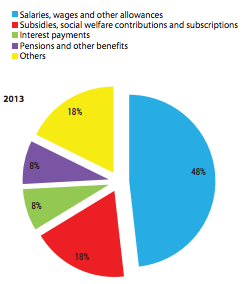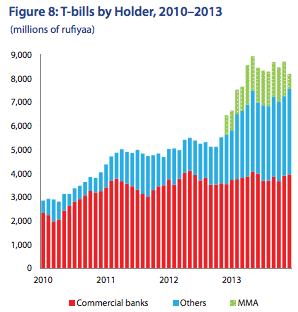The government is exploring options to commence the second phase of the Hulhumalé development project in the near future with Netherland’s Royal Boskalis Westminster a possible partner for the land reclamation component, Housing Development Corporation (HDC) Managing Director Suhail Ahmed has said.
Speaking to reporters yesterday (May 12) following activities to celebrate the 10th anniversary of Hulhumalé being declared an inhabited island, Suhail noted that a Boskalis dredger was currently in the Maldives.
“So that is also an option the government is considering that I know of. We are considering all options. [But] at the moment it is difficult to give a date,” Suhail said.
Boskalis has recently been accused of committing “serious environmental crimes” in the Maldives by a local environmental NGO after the Environment Protection Agency (EPA) found that regulations were violated in the Baa Eydhafushi reclamation work.
Boskalis was awarded a US$37 million four-island reclamation project by the government this year. The company has reclaimed 20 hectares in Dhaalu Atoll Meedhoo in March and 33 hectares in Baa Atoll Eydhafushi last week.
Work is ongoing on Kaafu Atoll Thulusdhoo while a date for reclamation in Dhaalu Atoll Kudahuvadhoo has not yet been announced.
Meanwhile, in January, HDC accepted bids from six companies – including Boskalis – for the second phase of the Hulhumalé development project, which involves reclaiming 230 hectares of land for development of further residential and commercial properties.
While the population of the artificial island is presently 30,000, Hulhumalé’s capacity is expected to increase to 100,000 with the completion of the second phase.
In July last year, HDC “conditionally awarded” the US$60 million reclamation project to Belgium-based Dredging International. The company however withdrew due to financial constraints.
Housing Minister Dr Mohamed Muiz told local media this week that the government hoped the reclamation project could commence in July with a decision by the Economic Council expected in the next two weeks.
“Youth village”
Developing a “youth village” in Hulhumalé with a population of 50,000 was a key campaign pledge of President Abdulla Yameen.
Speaking at an inauguration ceremony for the land reclamation project in Thulusdhoo earlier this week, President Yameen said the government’s objective was to relocate people from small islands in the atolls to Hulhumalé.
Economic opportunities in small islands were limited due to their size and isolation, he added.
The government hoped youth from smaller islands would migrate to Hulhumalé as well as other islands selected for land reclamation, Yameen said.
In April, Yameen said the HDC’s development plans were being revised to achieve the new administration’s goals.
The vision for the youth city includes a “technopolis park” as well as entertainment and sports facilities, he said, in addition to facilities for the tourism and fisheries industries.
“The youth village will not involve only housing [projects]. It will also include other projects related to the youth village such as the creation of light industries to provide job opportunities, as well as arrangements for food and beverages required by modern youth and restaurant facilities for [fast food],” he said.
HDC meanwhile organised an informal function yesterday to celebrate the 10th anniversary of Hulhumalé’s habitation with a parade and children’s activities.
Hulhumalé schools and service providers participated in the activities.
HDC MD Suhail told the press that a formal event is being planned for a late date, which would recognise the contribution of various parties to the island’s development.



